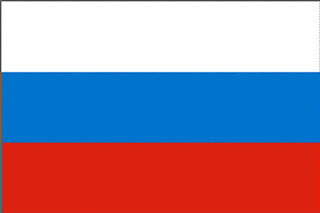For several years the position of Polish exporters on the markets of the former Commonwealth of Independent States has been clearly weakening
Published:
5 May 2003 y., Monday
In order to spur on trade, presentations of Polish exporters are gaining popularity. One such presentation is the Polish National Exhibition in St. Petersburg.
Geographic proximity, relatively small competition from local manufacturers who are not capable of satisfying the growing demand for modern products and, contrary to common belief, the increasingly wealthy and demanding customer, are the advantages of the "eastern market." Why then does trade with the countries of the Commonwealth of Independent States (CIS) constitute as little as 7.1 percent of the global value of Polish export?
The position of Polish companies is weakened by competition from the Western businesses that are perfectly aware of the perspectives which an active and strategically planned entry into Eastern markets can accomplish. Entrepreneurs from Germany, France and the United States, supported by the appropriate funds, first promote and then successfully sell their products in Russia and Ukraine or make direct investments there.
The decrease in the amount of Polish agriculture and food products exported to Eastern markets has stemmed from the fact that big international concerns such as Nestlé, Danone or Unilever directly entered this strategic area. However, the issue of Western competition is only a part of the answer to this question and the possibility of development for Polish exporters on the markets in the former Soviet Union.
One of the most serious difficulties Polish companies encounter is a considerable risk connected with signing commercial contacts with partners from the East who frequently appear to be insolvent and do not honor their contracts. According to Robert Stawski from the Promotion Chamber of the Polish Chamber of Commerce, businesspeople from Russia frequently do not understand the term "advance payment" and sometimes want to pay for the products only after they sell them. For obvious reasons, these terms are hard to accept for Polish manufacturers, which are mostly small and medium-sized companies. The state does not guarantee any protection for companies against situations in which partners from Russia, Belarus or Ukraine do not fulfill the terms of a commercial contract.
Šaltinis:
warsawvoice.pl
Copying, publishing, announcing any information from the News.lt portal without written permission of News.lt editorial office is prohibited.
The most popular articles
 How will economic policies adapt in 2020 when a quarter of the EU population is over 65? Can economics better predict how banks will react to credit crunches in the future, and what their impact will be on the wider economy?
more »
How will economic policies adapt in 2020 when a quarter of the EU population is over 65? Can economics better predict how banks will react to credit crunches in the future, and what their impact will be on the wider economy?
more »
 The EBRD is supporting the development of one of the first modern food retail chains in Turkmenistan with a $1.9 million equity investment in Ak Enar.
more »
The EBRD is supporting the development of one of the first modern food retail chains in Turkmenistan with a $1.9 million equity investment in Ak Enar.
more »
 While on a working visit to Ukraine, President of the Republic of Lithuania Dalia Grybauskaitė has underlined that Ukraine might become a very important energy partner for Lithuania and for the whole European Union but only transparent and open relations will lead to success in this area.
more »
While on a working visit to Ukraine, President of the Republic of Lithuania Dalia Grybauskaitė has underlined that Ukraine might become a very important energy partner for Lithuania and for the whole European Union but only transparent and open relations will lead to success in this area.
more »
 On 25 November in Vilnius, Lithuania’s Vice-Minister of Foreign Affairs and President of the Nordic Investment Bank discussed the issues of the Northern Dimension Partnership on Transport and Logistics (the secretariat of which is being established at the Bank), issues of the NIB cooperation with Lithuania and perspectives of the NIB’s activities in the country.
more »
On 25 November in Vilnius, Lithuania’s Vice-Minister of Foreign Affairs and President of the Nordic Investment Bank discussed the issues of the Northern Dimension Partnership on Transport and Logistics (the secretariat of which is being established at the Bank), issues of the NIB cooperation with Lithuania and perspectives of the NIB’s activities in the country.
more »
 The European Bank for Reconstruction and Development has adopted a new strategy for the Russian Federation.
more »
The European Bank for Reconstruction and Development has adopted a new strategy for the Russian Federation.
more »
 Consumer protection requires transparent and consistent trade rules, believe MEPs.
more »
Consumer protection requires transparent and consistent trade rules, believe MEPs.
more »
 The European Investment Bank (EIB) is lending CZK 2 billion (approx. EUR 76 million) to the South Moravia Region for co-financing the Region’s priority infrastructure projects supported by the EU Structural and Cohesion Funds over the period 2007 – 2013.
more »
The European Investment Bank (EIB) is lending CZK 2 billion (approx. EUR 76 million) to the South Moravia Region for co-financing the Region’s priority infrastructure projects supported by the EU Structural and Cohesion Funds over the period 2007 – 2013.
more »
 Seeking to strengthen business partnership between Israel and Lithuania the Israel and Lithuania Chamber of Commerce has been recently established in Lithuania.
more »
Seeking to strengthen business partnership between Israel and Lithuania the Israel and Lithuania Chamber of Commerce has been recently established in Lithuania.
more »
 AB DnB NORD Bankas, notifies that on 24 November 2009, the member of the Management Board and Executive Vice-president of AB DnB NORD Bankas dr. Jekaterina Titarenko has been appointed as Chief Financial Officer of Bank DnB NORD Group.
more »
AB DnB NORD Bankas, notifies that on 24 November 2009, the member of the Management Board and Executive Vice-president of AB DnB NORD Bankas dr. Jekaterina Titarenko has been appointed as Chief Financial Officer of Bank DnB NORD Group.
more »
 Parliament gave its backing on Tuesday for €400 million-plus in budget aid to Serbia, Bosnia and Herzegovina, Armenia and Georgia.
more »
Parliament gave its backing on Tuesday for €400 million-plus in budget aid to Serbia, Bosnia and Herzegovina, Armenia and Georgia.
more »